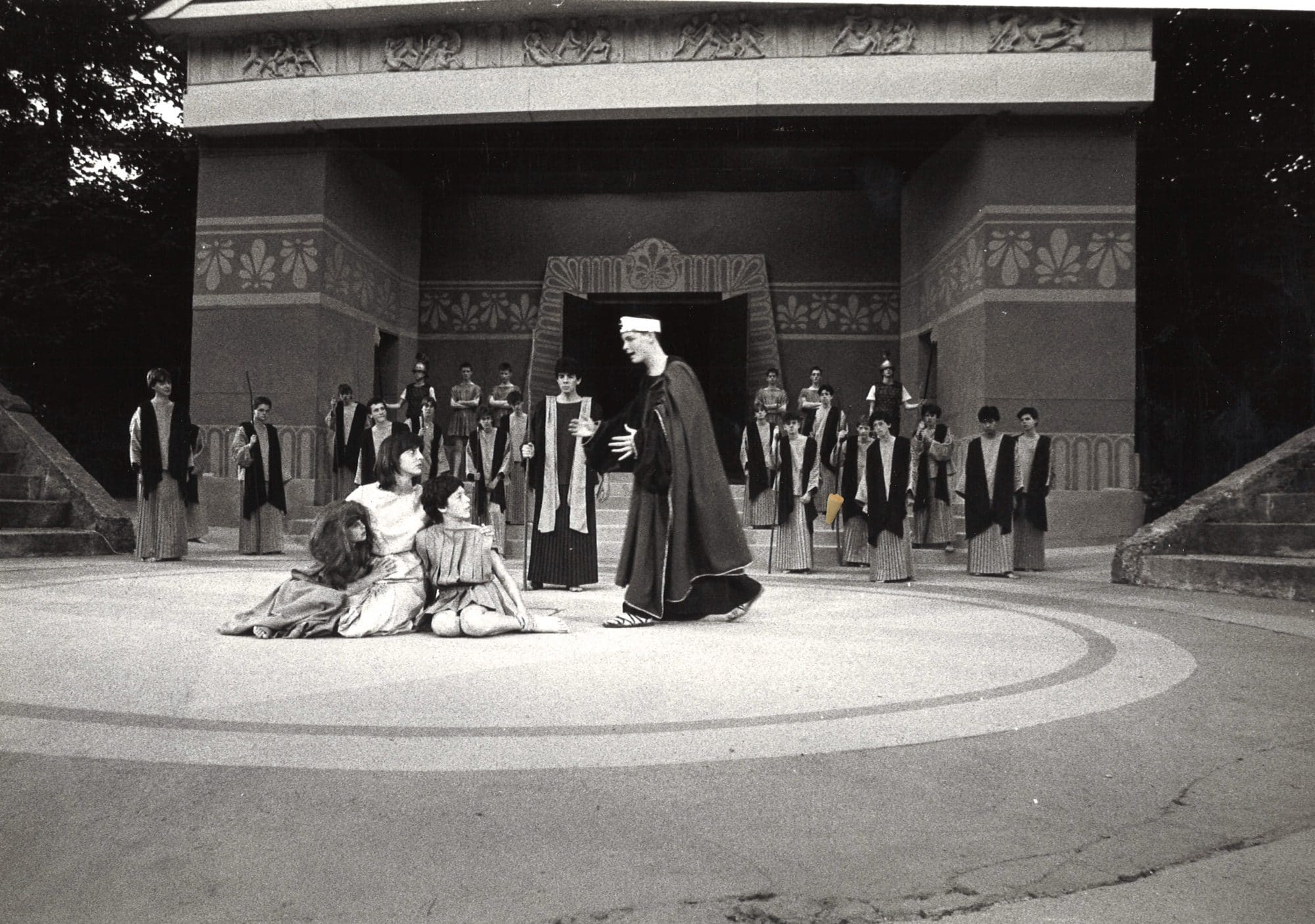There were two performances, on Saturday 18 February 1882 and Tuesday 21 February 1882. The Spectator of 25 February 1882 described it as “a plucky experiment”. For months beforehand, the College had been going through trying times and in the summer of 1881 was officially bankrupt, with the Founder Thomas Stevens stepping down as Warden. Prospects were bleak.
Yet so far from losing heart, Dr Gray and the teaching staff embarked on the production of Alcestis as a project shared with their then fifty five pupils, to be “acted partly by the boys at school at Bradfield, and partly by the young Oxford men whose performance of the Agamemnon last year was so successful”.
This was the production by Frank Benson of the Agamemnon of Aeschylus, in Balliol College in June 1880. Oscar Wilde had suggested the idea to Frank Benson. The runaway success of the production – with Edward Burne-Jones advising on costumes and scenery, and luminaries including Tennyson and Browning in the audience – made schoolmasters and academics alike sit up and take notice. The Agamemnon went on tour to Eton, Harrow, and Winchester in December 1880, and even to Cambridge in 1881, inspiring the beginnings of the Cambridge Greek play in November 1882.
Perhaps, as Richard Osborne wrote in his notes for the 1994 Bradfield Greek Play Troiades, “there is no way of knowing whether Gray journeyed to Oxford on 3 June 1880 to see his old friend Benson play Clytemnestra. However, within the year the Bradfield College Chronicle carried an extraordinary announcement – a provisional cast list for a production of Euripides’ Alcestis to be performed in Ancient Greek in the College Dining Hall”.
At Bradfield, pupils were not just to be spectators; they were to take part in the play, acting and learning alongside the “young Oxford men” and their teachers. Indeed, Dr Gray himself took on learning the greatest number of lines, as Admetus. So the Bradfield Greek play began, in that characteristic spirit of commitment, collaboration, and ambition defying all reasonable expectation, which continues to this day.






